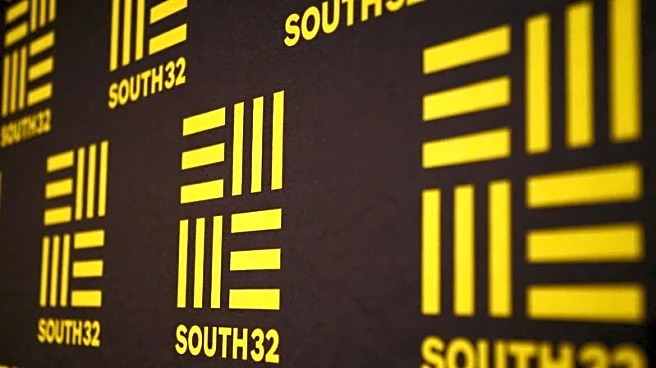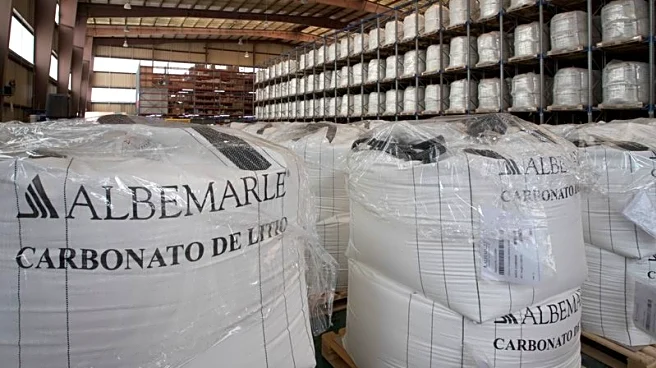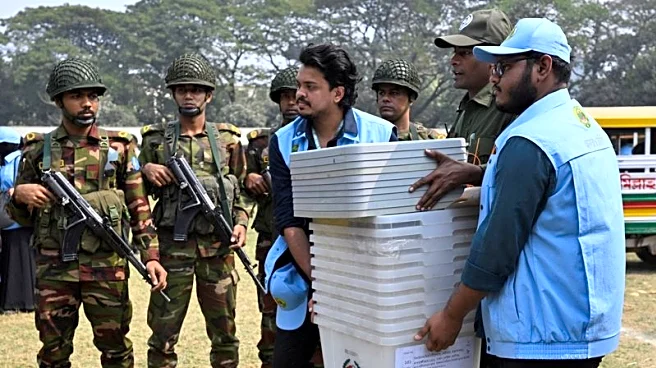What's Happening?
In the aftermath of a fragile ceasefire, Gaza faces the daunting task of rebuilding amidst widespread destruction. A significant portion of housing has been destroyed or severely damaged, leaving millions
of tons of rubble and unexploded ordnance. A comprehensive plan has been proposed to address the immediate need for shelter and the long-term development of sustainable communities. This plan includes the creation of 'future-oriented camps' designed to evolve into permanent neighborhoods, utilizing open areas adjacent to cities for new developments. The approach aims to balance immediate housing needs with the strategic rebuilding of urban areas.
Why It's Important?
The reconstruction of Gaza is crucial for the stability and future of the region. The proposed plan not only addresses the immediate humanitarian crisis but also lays the groundwork for long-term development and peace. By creating organized and sustainable communities, the plan seeks to prevent the formation of permanent slums and improve living conditions for displaced Gazans. Successful implementation could serve as a model for post-conflict recovery in other regions, potentially influencing international policy and aid strategies. The involvement of international construction firms and the focus on strategic urban planning highlight the global significance of this reconstruction effort.
What's Next?
The next steps involve securing international support and funding for the reconstruction efforts. The plan requires collaboration between local authorities, international organizations, and construction firms to ensure the safe and efficient removal of rubble and unexploded ordnance. As the rebuilding process begins, monitoring and adapting the plan to address emerging challenges will be essential. The success of this initiative could influence future peace negotiations and the broader geopolitical landscape in the Middle East.
Beyond the Headlines
The reconstruction of Gaza presents ethical and cultural challenges, particularly in balancing the needs of displaced populations with political considerations. The plan's success depends on addressing these complexities and ensuring that the voices of Gazans are heard in the rebuilding process. Long-term, the development of sustainable communities could foster economic growth and social cohesion, contributing to regional stability.










